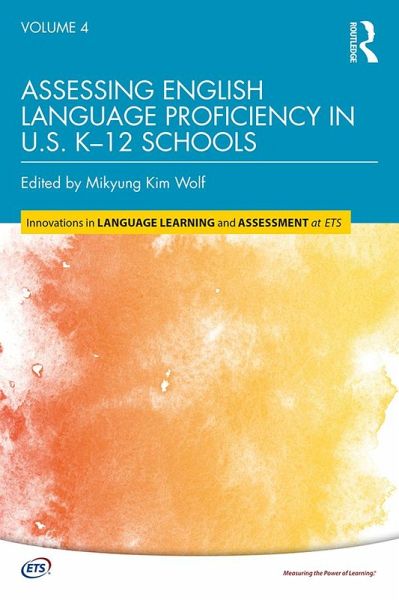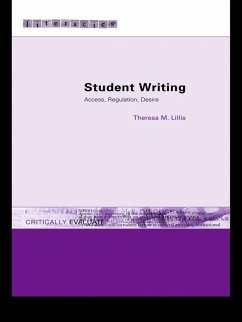
Assessing English Language Proficiency in U.S. K-12 Schools (eBook, PDF)
Versandkostenfrei!
Sofort per Download lieferbar
44,95 €
inkl. MwSt.
Weitere Ausgaben:

PAYBACK Punkte
22 °P sammeln!
Assessing English Language Proficiency in U.S. K-12 Schools offers comprehensive background information about the generation of standards-based, English language proficiency (ELP) assessments used in U.S. K-12 school settings. The chapters in this book address a variety of key issues involved in the development and use of those assessments: defining an ELP construct driven by new academic content and ELP standards, using technology for K-12 ELP assessments, addressing the needs of various English learner (EL) students taking the assessments, connecting assessment with teaching and learning, an...
Assessing English Language Proficiency in U.S. K-12 Schools offers comprehensive background information about the generation of standards-based, English language proficiency (ELP) assessments used in U.S. K-12 school settings. The chapters in this book address a variety of key issues involved in the development and use of those assessments: defining an ELP construct driven by new academic content and ELP standards, using technology for K-12 ELP assessments, addressing the needs of various English learner (EL) students taking the assessments, connecting assessment with teaching and learning, and substantiating validity claims. Each chapter also contains suggestions for future research that will contribute to the next generation of K-12 ELP assessments and improve policies and practices in the use of the assessments. This book is intended to be a useful resource for researchers, graduate students, test developers, practitioners, and policymakers who are interested in learning more about large-scale, standards-based ELP assessments for K-12 EL students.
Dieser Download kann aus rechtlichen Gründen nur mit Rechnungsadresse in A, B, BG, CY, CZ, D, DK, EW, E, FIN, F, GR, HR, H, IRL, I, LT, L, LR, M, NL, PL, P, R, S, SLO, SK ausgeliefert werden.













